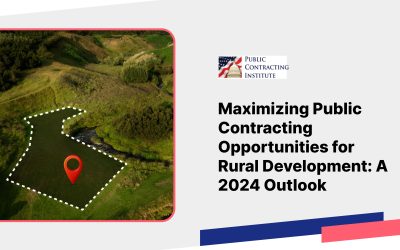In a recent protest at the Government Accountability Office (“GAO”), the GAO held that limiting quotation revisions when taking corrective action was within the discretion of the agency, provided that the agency concluded that only certain information was needed. ActioNet, Inc., B-416557.4, Feb. 27, 2019.
The procurement involved a Department of the Interior Business Center task order for Defense Healthcare Management support services. The Request for Quotations (“RFQ”) identified eight key personnel positions and minimum qualifications and requirements for each position. For each key person, offerors were required to provide a resume, a letter of commitment, and a certification that the key person would be available at time of award and for a period of no less than one year. Following evaluation, the agency issued a $90 million task order to ASRC Federal Data Network Technologies (“AFDNT”). ActioNet filed a protest alleging problems with the evaluations and with Organizational Conflicts of Interest. The action agreed to take corrective action on all protest allegations, and GAO dismissed this initial protest.
Some time after the dismissal of the initial protest, ActioNet advised the agency that it had learned that two personnel in AFDNT’s quote were no longer available. The Agency requested that AFDNT confirm that the key personnel in its quote were still available. AFDNT replied that some of its key personnel were no longer available, and responded with resumes and letters of commitment for its newly proposed key personnel. Shortly thereafter, the agency wrote to ActioNet, asking if all its personnel were still available, and if not, inviting ActioNet to provide revised personnel and resumes. The agency did not request any additional information or price changes from either offeror—and the Agency stated that to GAO in this protest that “no changes to key personnel would result in either offeror presenting the best value unless both ActioNet or AFDNT failed to provide adequate key personnel.”
ActioNet protested that the agency’s limitation on quotation revisions to allow only for substitutions of key personnel was improper and constituted unequal and misleading discussions. The GAO disagreed, and denied the protest, noting that when an agency is implementing corrective actions, the agency may reasonably limit the scope of quote/proposal revisions. Where corrective action does not also include amending the solicitation, reasonable restrictions on quotation revisions will be permitted. The GAO held that in this procurement, the limitations on quotation revisions were reasonable, because the delay resulting from the initial protest may have affected the availability of the originally proposed key personnel, and that the evaluation should be based on available key personnel. Further, GAO noted that both offerors were provided an opportunity to update their key personnel (even though the time frame for each offer’s opportunity was slightly different—but both had a fair opportunity to respond to the agency’s request, as required under FAR 16.505(b)(1)).
The Takeaway: Agencies may limit proposal (or quotation) revisions, within reason, when taking corrective action. However, if the revisions causes your quote or proposal to raise (or lower) your price, you should note that the agency and seek agency permission to adjust your price.
For other helpful suggestions on government contracting, visit:
Richard D. Lieberman’s FAR Consulting at https://www.richarddlieberman.com/, and Mistakes in Government Contracting at https://richarddlieberman.wixsite.com/mistakes/.

